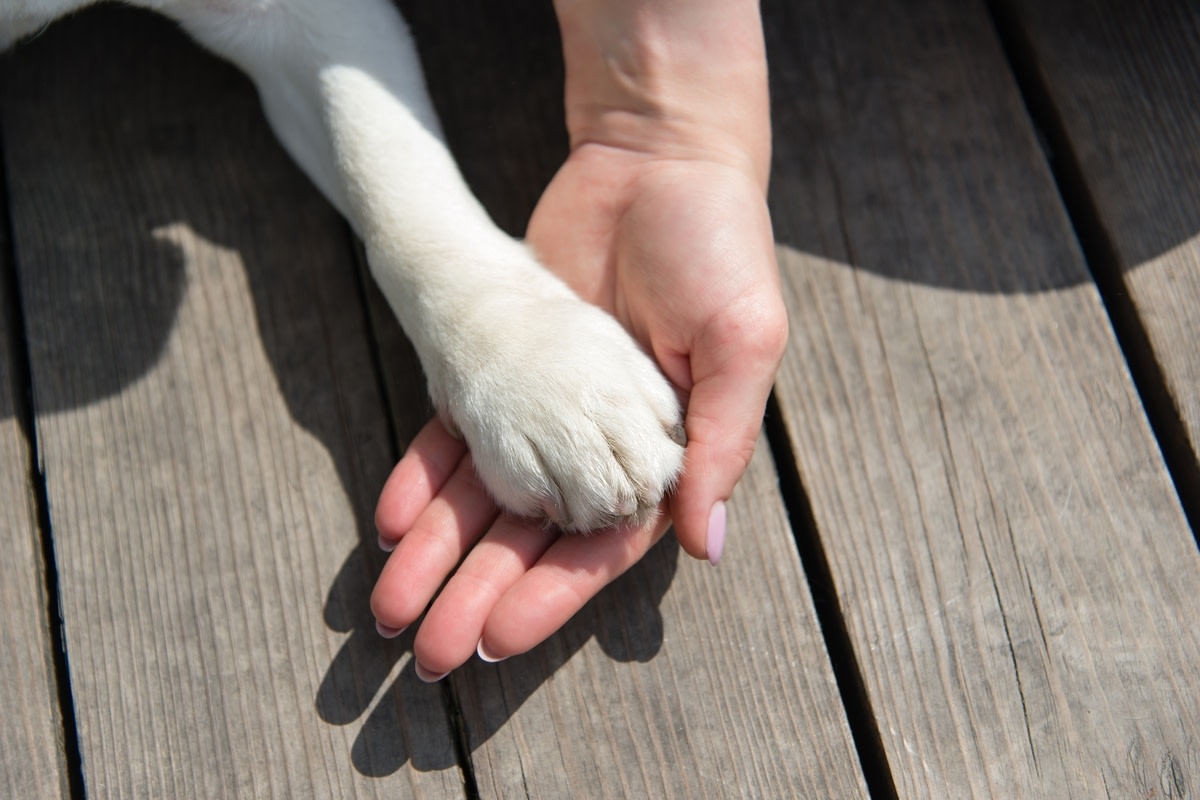
Can You Get Rabies From a Deceased Dog?
Image via Svechkova Olena/Shutterstock
Can I Get Rabies From My Dog Who Died?
“Could I have caught rabies from a dead dog? My beloved dog died yesterday. A week ago, she bit a puppy who doesn’t have a rabies vaccine yet. The puppy was sleeping outside. My deceased dog was vaccinated before the pandemic. I know dogs are vaccinated every year, but my dog was running around a fenced garden.
On Saturday, symptoms included vomiting and diarrhea. She was unsteady and had difficulty going up and down stairs. She went outside two or three times and drank water for the last time. She wasn’t aggressive. In the evening, she was breathing heavily.
On Friday or Saturday after 1pm, she approached us while we were eating and looked at us. Late in the afternoon, she came to me as she was coming down the stairs, and I stroked her head and forehead. She had vomit or something like that stuck to her hair. I didn’t look to see if I had a cut or not, and I stroked her. Then, I quickly washed my hand with soap, and I have long nails that I didn’t wash thoroughly. In the evening, I saw that between my thumb and finger, I had a microscopic crack in the skin, like blood. I ask because at night foxes and raccoons hang around our yard and steal food from my animals and eat waste vegetables and fruits. I’m worried. I’m afraid.” – Dora
Rabies in Vaccinated Dogs Is Unlikely
Since your dog was vaccinated, even if it was out of date, the chance that she spread rabies to you, even if she had been in contact with the virus, is unlikely. There are fewer than 300 cases of rabies in Poland each year (1), and most of them are in wild animals. Almost all the cases of rabies in Europe are from travelers who become infected when visiting other regions. Rabies is still a poorly controlled disease in parts of Asia and Africa, and that is where most of the deaths occur. (2)
Rabies Symptoms in Dogs
The symptoms you listed are also not what is usually found in dogs with rabies. Dogs do become lethargic (weak and unsteady) and may vomit but do not normally have diarrhea when suffering from a rabies infection. They also avoid water since their throats become paralyzed from the virus and they are unable to swallow.
About 20 percent of rabies cases are the paralytic or “dumb” form. However, it is possible that your dog had this form of rabies, or had rabies exposure as well as another health problem that was causing those symptoms. Dogs with paralytic rabies do not become furious and bite other animals or people, they just salivate excessively, become weak, and lie around until they die.
Even though it is unlikely, there is a small chance that your dog did transmit the virus in his saliva to the scratch on your hand. I would suggest that you contact a medical professional in your area and get vaccinated against rabies. This is not an emergency, but it should be prevented since if you were infected there are no treatments available. The vaccines are not painful or stressful like they once were, and in some places, they give intradermal vaccines that are less stressful. (3)
Sources
- Krzowska-Firych J, Mazurek E, Hasiec B, Tomasiewicz K. The first report evaluating the post-exposure rabies prophylaxis in children exposed to animals in the Lublin Province (Eastern Poland) in 2010-2016 – a retrospective study. Hum Vaccin Immunother. 2018;14(11):2660-2665. doi: 10.1080/21645515.2018.1477910. Epub 2018 Jun 28. PMID: 29771638; PMCID: PMC6314426. https://www.ncbi.nlm.nih.gov/pmc/articles/PMC6314426/
- Burgos-Cáceres S. Canine Rabies: A Looming Threat to Public Health. Animals (Basel). 2011 Sep 26;1(4):326-42. doi: 10.3390/ani1040326. PMID: 26486619; PMCID: PMC4513477. https://www.ncbi.nlm.nih.gov/pmc/articles/PMC4513477/
- Natesan K, Isloor S, Vinayagamurthy B, Ramakrishnaiah S, Doddamane R, Fooks AR. Developments in Rabies Vaccines: The Path Traversed from Pasteur to the Modern Era of Immunization. Vaccines (Basel). 2023 Mar 29;11(4):756. doi: 10.3390/vaccines11040756. PMID: 37112668; PMCID: PMC10147034. https://www.ncbi.nlm.nih.gov/pmc/articles/PMC10147034/
This article is not meant to substitute for diagnosis, prognosis, treatment, prescription, or formal and individualized advice from your veterinarian. Animals exhibiting signs and symptoms of distress should be seen by a veterinarian immediately.
© 2024 Mark dos Anjos, DVM


